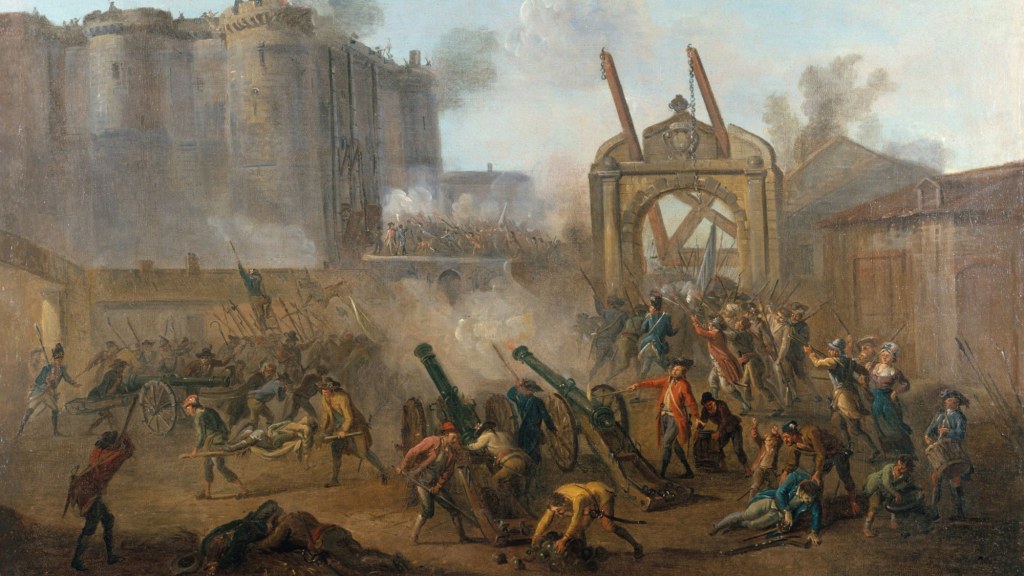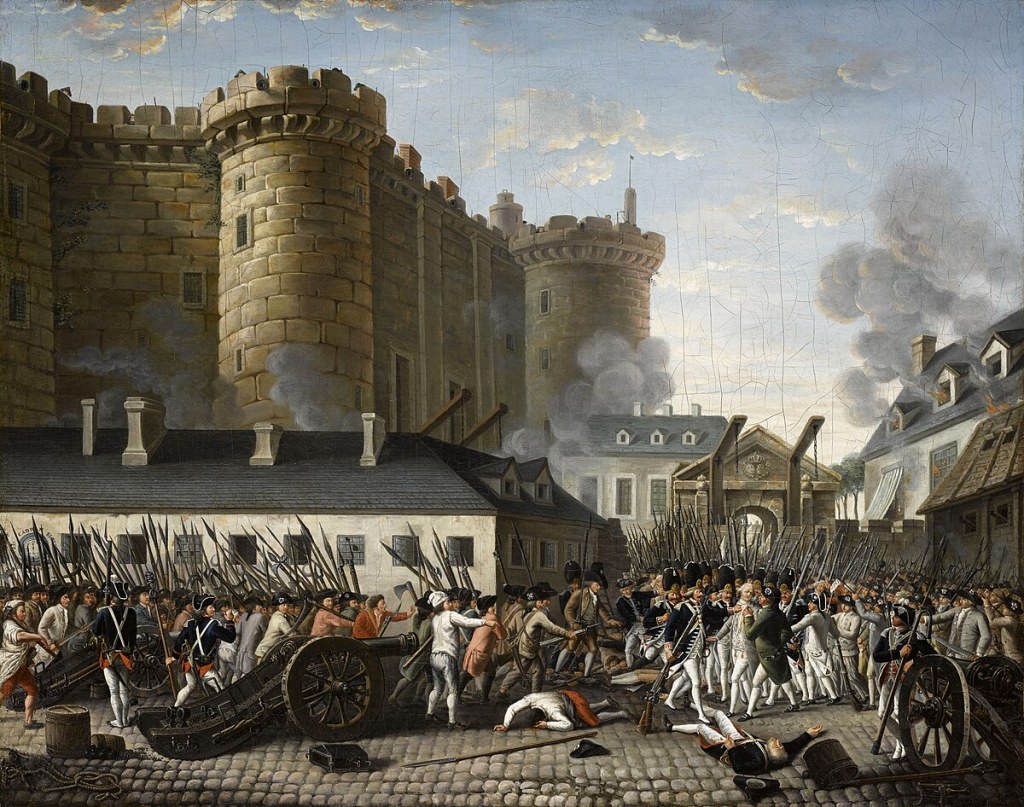French Politics in the 18th Century: A Historical Overview
Greetings, readers! Today, we delve into the captivating world of French politics in the 18th century. 🇫🇷 In this article, we will explore the key events, influential figures, and significant aspects of a time period that shaped the nation’s political landscape. Prepare to embark on a journey through history as we uncover the intricacies and nuances of French politics during this era.
The Table of French Politics in the 18th Century
Event
Date
Significance
Age of Enlightenment
1715-1789
Intellectual movement that influenced political thought
French Revolution
1789-1799
Radical social and political transformation
Reign of Louis XV
1715-1774
Political instability and decline of royal authority

Image Source: aetnd.com
Reign of Louis XVI
1774-1792
Monarch faced growing opposition and eventual execution
Enlightened Despotism
1715-1792
Attempts to reform the monarchy
Estates-General
1789
Assembly that marked the beginning of the French Revolution
What Was French Politics Like in the 18th Century? 🤔
The 18th century in France was characterized by a dynamic political landscape marked by various social, economic, and intellectual movements. The Age of Enlightenment, for instance, brought forth new ideas surrounding individual rights, reason, and representative government. These ideas influenced the political thought of the time, challenging traditional notions of power and authority.

Image Source: wikimedia.org
The French Revolution, which began in 1789, was a pivotal event that reshaped the entire political structure of the nation. It was a period of radical change, fueled by the desire for equality, liberty, and fraternity among the French people. The revolution led to the downfall of the monarchy, the rise of factions, and ultimately, the establishment of a republic.
Throughout the 18th century, France witnessed the reigns of two significant monarchs – Louis XV and Louis XVI. Louis XV’s reign was marked by political instability and a decline in royal authority. His successor, Louis XVI, faced increasing opposition as the country grappled with financial crises and growing social unrest. Ultimately, Louis XVI’s reign ended tragically with his execution during the French Revolution.
Enlightened despotism was a notable attempt to reform the monarchy during this era. Monarchs such as Louis XV and Louis XVI sought to implement enlightened policies and reforms to address societal issues. However, these efforts were met with limited success, ultimately paving the way for the revolution that would ultimately transform French politics.
Who Were the Key Figures in French Politics During the 18th Century? 👥
The 18th century in French politics was shaped by numerous influential figures who played pivotal roles in the nation’s history. Let’s take a closer look at some of these individuals:
1. Louis XV
Louis XV ascended to the throne in 1715 at the age of five. His reign was characterized by political instability, as France faced various military conflicts and financial crises. Despite attempts at reform, Louis XV’s rule was marked by a decline in royal authority and a growing dissatisfaction among the French population.
2. Louis XVI
Louis XVI succeeded his grandfather, Louis XV, in 1774. His reign was plagued by economic hardships, escalating debts, and social unrest. He faced mounting opposition, particularly from revolutionary factions, which eventually led to his overthrow and execution during the French Revolution.
3. Jean-Jacques Rousseau
Rousseau was a prominent philosopher and writer whose ideas greatly influenced French political thought during the 18th century. His works, such as The Social Contract, explored concepts of democracy, popular sovereignty, and the importance of individual freedoms.
4. Maximilien Robespierre
Robespierre was a key figure during the French Revolution and a leader of the radical Jacobin faction. He played a central role in the Reign of Terror, a period marked by mass executions of those deemed enemies of the revolution. Robespierre’s influence was significant but controversial, as his extreme measures led to his downfall and execution.
5. Marie Antoinette
Marie Antoinette, the queen consort of Louis XVI, was a figure of great significance during the 18th century. Her extravagant lifestyle and perceived indifference to the struggles of the French people made her a symbol of the monarchy’s excesses. She faced public scrutiny and, like her husband, met a tragic fate during the revolution.
When Did French Politics in the 18th Century Take Place? 📅
The political developments and events of the 18th century in France spanned from 1715 to 1799. This era began with the reign of Louis XV and ended with the rise of Napoleon Bonaparte, who seized power in the aftermath of the French Revolution. Within this period, the French Revolution itself occurred from 1789 to 1799, fundamentally reshaping the political landscape of France.
Where Did French Politics in the 18th Century Unfold? 🌍
French politics in the 18th century unfolded primarily within the borders of France itself. Paris, as the capital city, served as the epicenter of political activity and the stage for many significant events. The Estates-General, for example, convened in Versailles in 1789, marking the beginning of the French Revolution. However, the repercussions of French politics during this time reverberated throughout Europe, inspiring and influencing political movements in other countries.
Why Was French Politics in the 18th Century Significant? 🤷♂️
French politics in the 18th century holds immense significance due to its profound impact on the nation and its subsequent influence on the world stage. This era witnessed a transformative period in French history, characterized by social upheaval, political revolutions, and an intellectual awakening.
The French Revolution, in particular, challenged the existing social and political structures, ultimately leading to the rise of the First French Republic. The ideas that emerged during this time, such as notions of equality, liberty, and human rights, continue to shape political thought and inspire movements for justice and freedom worldwide.
How Did French Politics in the 18th Century Shape the World? 🌍
The tumultuous events and ideas stemming from French politics in the 18th century reverberated far beyond the borders of France itself. The French Revolution, with its call for equality and liberation, sparked a wave of revolutionary fervor across Europe and beyond. It inspired movements for democracy, fueled nationalist sentiments, and led to the spread of ideas that challenged traditional forms of governance.
Furthermore, the political and social transformations brought about by French politics during this era influenced subsequent historical events. The Napoleonic era that followed the revolution, for example, shaped Europe’s political landscape for years to come. French political thought, driven by the Enlightenment, also left a lasting impact on the development of democratic systems and constitutional governments worldwide.
The Advantages and Disadvantages of French Politics in the 18th Century 💪🤔
Advantages:
1. Enlightenment Ideas: The 18th century in France saw the rise of Enlightenment ideas that challenged traditional political structures and paved the way for the promotion of individual rights and freedoms.
2. Revolution of Equality: The French Revolution aimed to establish a society based on the principles of equality, liberty, and fraternity, inspiring future revolutionary movements worldwide.
3. Intellectual Awakening: French politics in the 18th century was marked by an intellectual awakening that fostered new ideas, scientific advancements, and the pursuit of knowledge.
Disadvantages:
1. Social Unrest: The political changes and economic hardships of the 18th century led to widespread social unrest and discontent among the French population.
2. Reign of Terror: The radical phase of the French Revolution, known as the Reign of Terror, resulted in mass executions and the suppression of political dissent, raising ethical concerns.
3. Destabilization and Turmoil: The French Revolution and its aftermath caused a period of political instability and frequent changes in government, hampering the nation’s progress.
Frequently Asked Questions (FAQs) on French Politics in the 18th Century 📝
1. Q: How did the Enlightenment influence French politics in the 18th century?
A: The Enlightenment brought forth new ideas of reason, individual rights, and representative government, challenging traditional notions of power and authority.
2. Q: Who were the key leaders of the French Revolution?
A: Key leaders of the French Revolution included Maximilien Robespierre, Jean-Paul Marat, and Georges Danton, among others.
3. Q: What were the causes of the French Revolution?
A: The French Revolution was primarily caused by socio-economic inequality, political corruption, and a desire for political representation.
4. Q: How did the French Revolution impact Europe?
A: The French Revolution inspired revolutionary movements across Europe, fostered nationalist sentiments, and influenced political thought and governance systems.
5. Q: What were the long-term effects of French politics in the 18th century?
A: French politics in the 18th century had a lasting impact on the development of democratic systems, the spread of Enlightenment ideas, and the reshaping of Europe’s political landscape.
Conclusion: Reflecting on the Legacy of French Politics in the 18th Century ✍️
French politics in the 18th century stands as a testament to the power of ideas, the pursuit of justice, and the determination of the French people. The era was marked by profound transformations, from the intellectual awakening of the Enlightenment to the radical upheaval of the French Revolution.
Despite its advantages and disadvantages, French politics during this time left an indelible mark on history. The ideals of liberty, equality, and fraternity continue to shape political discourse and inspire movements around the world.
As we reflect on the rich tapestry of French politics in the 18th century, let us remember the lessons learned and the enduring legacy of a nation that dared to challenge the status quo and redefine the boundaries of political possibility.
Final Remarks: A Journey Through French Political History 📚
In conclusion, delving into the realm of French politics in the 18th century provides us with a treasure trove of insights into the past. The complexities and nuances of this era continue to captivate historians, scholars, and enthusiasts alike.
While this article has sought to shed light on the major events, influential figures, and significant aspects of French politics during this time, it only scratches the surface of a rich and vibrant history. We encourage you, dear readers, to explore further, delve deeper, and uncover the hidden gems of this pivotal period in French and world history.